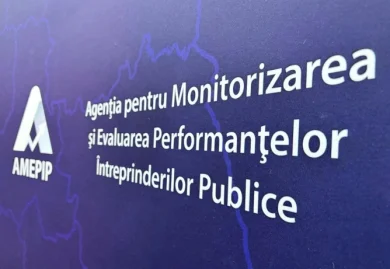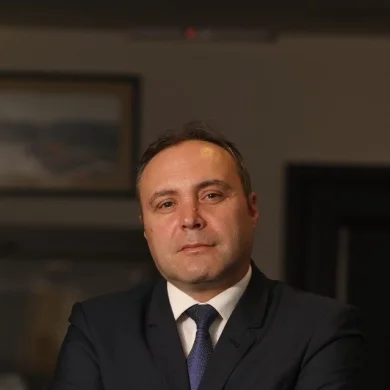
For 35 years we have been reforming state-owned companies. With new governments, new ministers and directors, committees, strategies, colorful PowerPoints, and the same results: nothing.
In Romania, the reform of state-owned companies has become a tradition of lies - a kind of annual carol of new and old governors. Everyone talks about performance, but no one really wants it.
Because performance means transparency, accountability, meritocracy, and these terms are lethal in a system where management committees are parking spots for political loyalties.
We like to say that the state should be a good administrator, that state-owned enterprises should be engines of the economy. They could be. If they were allowed to operate based on economic criteria, not electoral ones. If they were led by professionals, not "the right people."
In Romania, reform is elegantly mimicked, just enough to look good in Brussels and not disturb anyone at home.
The best example in this regard: October 6, 2025, was supposed to be a turning point. The General Secretariat of the Government launched the selection process for the leadership of AMEPIP - the Agency for Monitoring and Evaluating the Performance of Public Enterprises, that institution that should become the engine of corporate governance reform in state-owned companies in Romania. It may seem like just a technical subject, but in reality, it is one of the most important for the Romanian administration.
This process determines whether we will finally have state-owned companies led by professionals or whether we will remain stuck in the old system of political appointments. This decision also depends on an essential milestone from the PNRR, which is linked to over 330 million euros.
In Romania, there are approximately 1,400 state-owned companies. Most are losing money, are inefficient, or are blocked by bureaucracy and interests. Not because there is no potential or market, but because they are poorly managed, by people appointed based on criteria that have nothing to do with competence and meritocracy. For years we have promised that we will apply Law 109 on corporate governance. But, as usual, good reforms are beautifully written and applied just enough not to disturb.
AMEPIP was created more than two years ago as a chance for a restart - an institution meant to professionalize public management. Only that, to succeed, it needs true leaders - those "the best of the best" - people who understand economics, management, entrepreneurship, and performance.
Selection process with small firms
These people - "the best of the best" - are selected by some committees. In this case, it is about a committee that recruits the management of AMEPIP. Inside it, there is a key figure: the independent expert. This is the individual or company that should guarantee the correctness of the entire selection process.
For years, these contracts have been won by the same three small firms. We are not talking about large executive search companies, with solid methodologies and international reputation, but about micro-firms with 1-3 employees, a turnover of under 200,000 euros, but profits of over 50%. Firms that work almost exclusively with the state and have produced, in the last ten years, the results we see: underperforming state-owned companies, lost European funds, lack of credibility.
As always, the same party-client company, which has led the last two selection processes, was selected by the General Secretariat of the Government.
What should a serious process look like? First of all, it should meet clear criteria, such as the participation of experts from the top 10 recruitment and executive search firms in Romania or the European Union; proven experience in recruiting CEOs and board members for large companies; at least five top management selection processes in the last two years, successfully completed, especially in the private sector; internationally validated methodology and total transparency; extensive public promotion in the business, academic, entrepreneurial environment and in the diaspora.
A personal experience
When I was directly involved in the reform of state-owned companies, I quickly understood that this does not just mean laws and regulations, but the right people in the right place. I worked, together with experts from the public and private sectors, on a set of clear criteria for the selection of recruitment firms. The goal was simple: a professional, transparent process aligned with international standards.
Unfortunately, these criteria were lost in the cumbersome process of functioning of a coalition made up of four parties. And what appeared in the final normative act, for which the Government assumed responsibility, does not offer much hope. Without quality filters, the best recruitment firms will not participate in public tenders.
Also, in the PNRR there is a milestone dedicated to the operationalization of AMEPIP. Romania has already been penalized for delays and the lack of credibility of the aforementioned institution. The European Commission has noted that recruitments are politicized, that the independence of the committees is only formal, and that the value of competence is missing.
Romania does not lack professionals. It lacks the courage to put them at the table and give them the chance to build. The AMEPIP process could be an example of authentic reform, but only if we finally have the courage to recruit competence, not party loyalty.
I encourage competent people from the private sector, although I understand their fears and reluctance, to get directly involved and be part of the change process. Because, without the involvement and pressure of the private sector and the population, the state will never reform.
Dragoș Anastasiu is a physician by profession, an entrepreneur involved in projects such as SuperTeach or Repatriot















